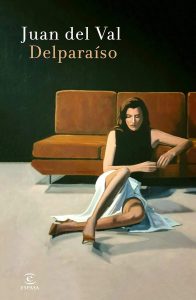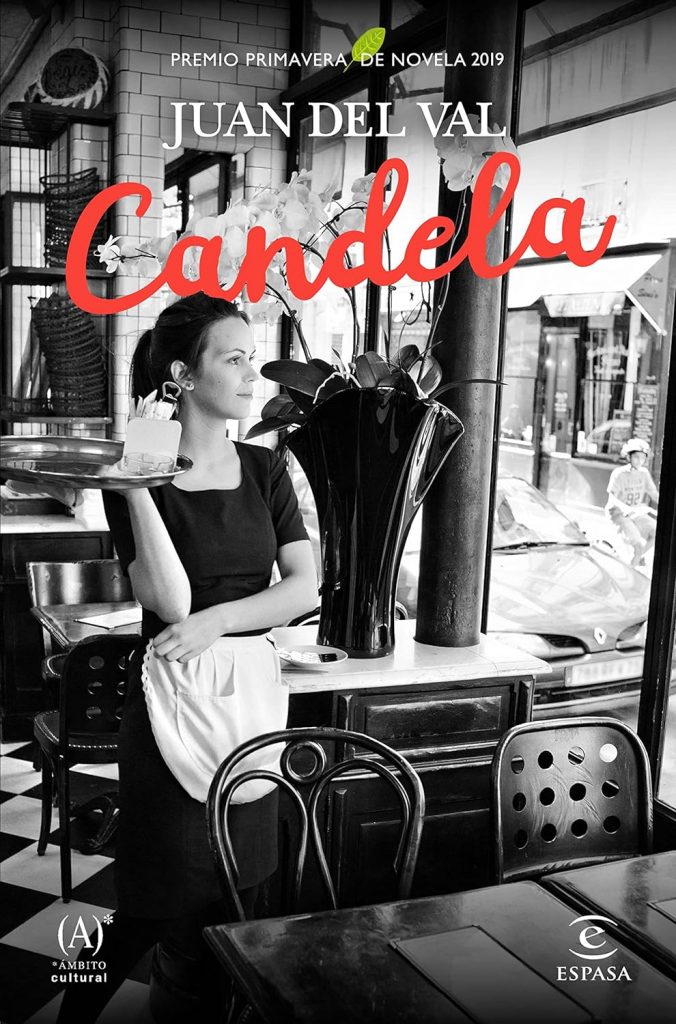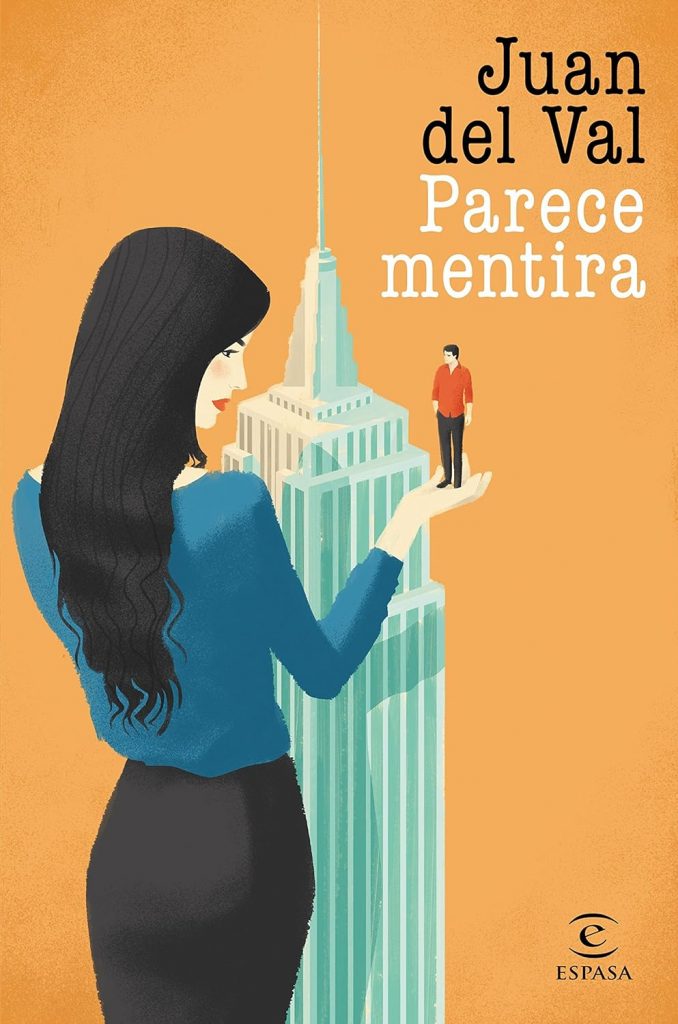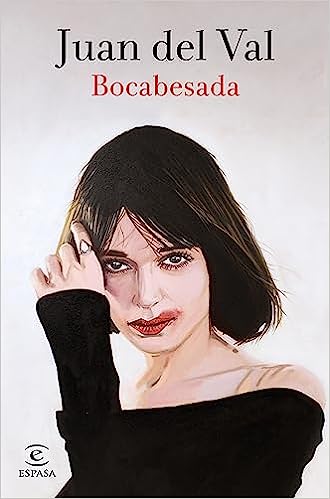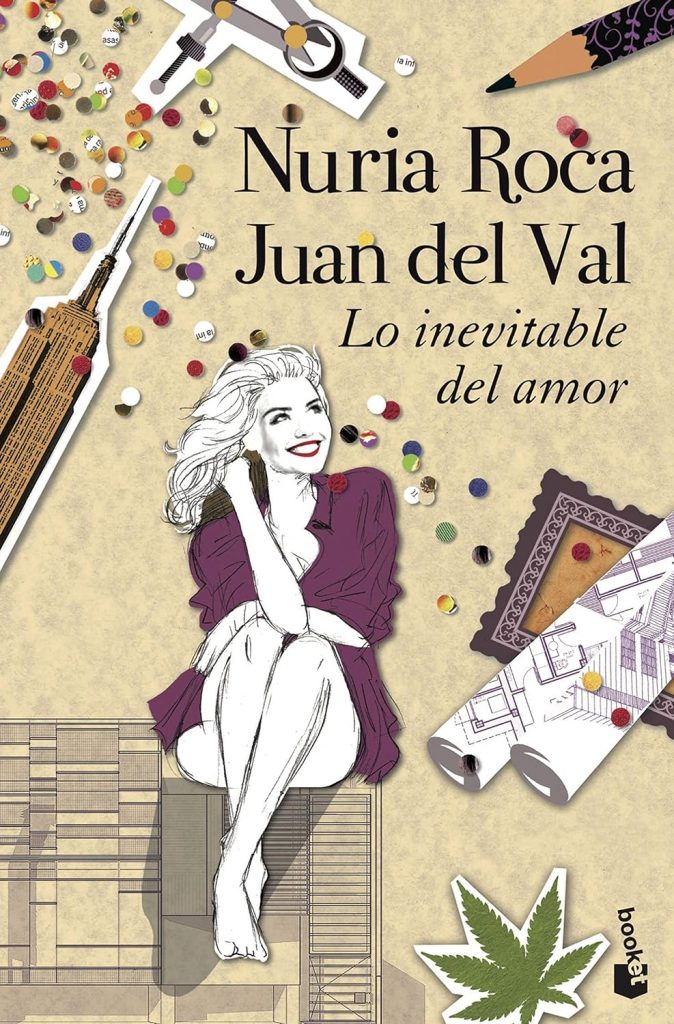Creativity, business and a pinch of transgression (always sticking to the world of books and their plots, although also sometimes extended to the media), came to him in a run. Juan del Val in his particular marriage with the presenter Nuria Roca.
But from that point of departure (materialized even in his first books in collaboration with his wife), Juan del Val has known how to make his way into the publishing market with novels marked by that vital stamp of the intense, with a usually feminine protagonism that is born in part from the author's fascination for the feminine universe.
Loves and heartbreaks, survival existentialism, passions and a flavor of constant conquest. To novel the avatars of a woman seems, in the hands of Juan del Val, a modern epic. Nothing more legendary than that daily conquest female version.
But beyond that iconic role of the female characters, the plots of this author invite us to a chronicle of our days, with that touch of philosophy of the everyday, of manners of a current era that shatters custom and shows how each one pulls forward with their miseries, their secrets, their passions and dreams with the diffuse horizon of happiness. A horizon as utopian and distant as it is dazzling in the few moments that allows the approach between so many distractions.
Top 3 recommended novels by Juan del Val
Delparaiso
Undoubtedly the most elaborate and consequently best-achieved work of an author who has managed to elevate that imaginary of everyday life towards an authentic realism that extracts guts from our most intimate plots. A plot at times with its echoes of an American Beauty mixed with the Truman Show and finally brought to Spain to characterize all that theater of the absurd that is life itself with its own idiosyncrasy.
Nothing better than a good luxury urbanization to end up awakening those contrasts of the filthiest misery that perhaps never inhabits the worst neighborhood on the outskirts. It's just a matter of getting to move to that other side, beyond the windows where the truth happens without the disguise of conveniences and conventions ...
The idea of a microcosm as a reflection of a general society on a scale acquires in this novel that melting pot where we are all recognizable, those who move in our environment and ourselves. Because the rich who live in Delparaíso continue to have those same yearnings for the growth of a middle class, only enhanced by being on the verge of total success, feeding a monstrous ambition under the protection of consumer artifice. Capable in the end of hating others almost more than they end up despising themselves.
Delparaiso it is a safe place, guarded 24 hours, luxurious and impregnable. However, its walls do not protect from fear, love, sadness, desire and death. Does it make sense to protect yourself from life?
Candle
As soon as you sink your teeth into this plot, you can sense that female protagonism that emerges even from the name chosen for the protagonist made the title, reinforcing from the outset the personality of this woman who has become a narrative universe.
Equality is an issue that is intended to be reached from above but which is also interesting to deal with below. And there literature and stories like this have a vast space to conquer.
I am referring to the image of the protagonist with overtones of a loser, almost an antagonist of himself. An almost always male stereotype in which fatality haunts as a mixture of unfortunate circumstances, bad luck or the destructive decision of the character on duty.
The appearance of Candela as the emblem of the loser gets that feeling that failure also belongs to everyone, men and women.
And from that failure, from that feeling of life as a lost bet, epic, transgressive, empathetic stories can always emerge for each and every one of us, regardless of sex, with our lost battles over which we have no choice but to overcome. So meeting Candela in the midst of her murky reality, of a job she despises as a waitress and in which she serves her wonderful doggy humor from table to table, ends up being partly reconciling.
Candela back from everything in her forties. With that defeatism from which the creativity of melancholy has so often emerged; the magic of nights in underworlds; and the remote hope of a better dawn, female version.
It seems like a lie
Juan del Val has had the pleasure of reencountering who he was. Another him from not so long ago, from not so many customs and vices, from not so many years ago. Any intention of autobiography becomes part of a fictionalized life.
Memory, in its most personal domain, is what it has, magnifies or reduces to the absurd, extols or forgets, deforms or transforms. The so-called long-term memory builds our identity based on a life of stark contrasts between good times and bad.
So to confess openly, as the author did, that this is the novel of his life under the name of another protagonist is, in itself, an act of authenticity. I do not mean that what is conveyed to us in a "standard" autobiography is false, it is more about one's perspective on an objectivity never achieved. Juan del Val was that typical boy who swam between the untimely waters of nihilism or rebellion, depending on the moment, something that has happened to many of us who were young not so long ago (in some cases more than in others 🙂.
But what this encounter with the boy who was the author contributes is the intensity. From adolescence to that first bout of responsibility (call it work, call it just waking up from maturity), everything happens in an intense way.
And life, as the poet announced, is a treasure, a very valuable baggage of emotions and sensations gathered more than ever during youth. As happened in the recent novel The look of the fish by Sergio del Molino, the narration of a youth that is determined to be difficult can lead to a person who is wise in experiences and prepared for everything that has to come.
More than anything because surviving oneself, when one makes the occasional companion self-destruction, is not always easy. And in the end, the humor of the survivors always surprises, accompanied by a kind of orchestra like that of the Titanic, determined to continue making music always, looking for the right symphony even for the inexorable doom.
People who have spent their youth as tightrope walkers probably smile more. Knowing that they have squeezed it without exhausting themselves on it. This book is a good example.
Other books by Juan del Val ...
mouthful
Searching for the complicity of analogies with reality, Juan del Val pulls from the script towards that vision of cinema as meta-cinema that absorbs life for all sorts of transformations, coming and going from here to there. Turned into a dizzying narrator of the present, del Val manages to outline the most unnoticed details of real life to end up tracing those atavistic human yearnings between the transcendence of success and happiness. With all the shocks that the task can bring.
Through its pages are an attractive and intelligent television contributor (although his most important characteristics are less obvious), a best-selling author in crisis and on the run; a married couple that sees the shadow of Alzheimer's looming over their more than fifty years together; an intelligent and capable young woman, imprisoned by the weight of her mistakes; a self-made actress who would kill for the part of her life, even if she only had three sentences…
An authentic constellation of characters whose link (although many of them don't even suspect it) is an audiovisual production company in which an absolutely unexpected twist in the script is about to take place.
The inevitability of love
There are words with flavor to end. Inevitable, irreversible, unappealable. Love is inevitable, version of this novel, like the overdue debt that always demands payment. In the appearances by which the architect María Puente moves, it seems that the embers of the past can be covered by the ashes of the passage of time.
But when she stomps on this time in her life, Maria ends up burning and must take letters to heal that blister that prevents her from walking again. An extensive metaphor to address a story about the idyllic family constructions and the internal counterweights that can end up giving way.
In the success of her work, in the perfect structure of her family with her husband and daughters, the shadow of doubt moves from the first moment, the stalking of misfortune that tries to seek its compensation amid so much superficial happiness.

